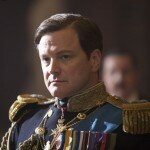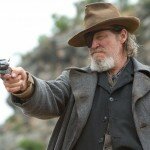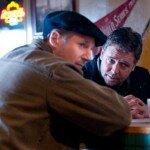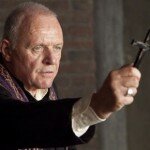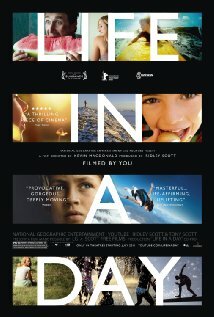If it wasn’t for his mum, director Tom Hooper wouldn’t have had anything to do with The King’s Speech, the critically lauded film starring Colin Firth, Geoffrey Rush and Helena Bonham Carter. That’s because she was the one who first introduced Hooper to David Seidler’s screenplay, which charts the unique friendship between the stammering King of England, King George VI (Firth), and his eccentric Australian speech therapist Lionel Logue (Rush). Hooper’s Australian-born mother is also the reason why the director has such a personal connection with the film, as the culture clash between a stiff-lipped Englishman and a laid-back Australian was one he could relate to as a child given his English/Australian upbringing.
But the success of The King’s Speech is a testament to Hooper’s own ability as a director, in particular his confident handling of a high-caliber ensemble cast and masterful balance of truth and entertainment. But as the director revealed in our phone interview, such a balance doesn’t come easy. Read the full transcribe of our interview below.
ANDERS WOTZKE: Australia is really the film’s second home isn’t it?
TOM HOOPER: Yeah, there are lots of Australian connections. There’s obviously Geoffrey [Rush] and the character he plays, Lionel Logue. Then there’s the production company See Saw Films which is Anglo-Australian; one producer is English, the other is Australian. And then of course I’m half Australian — my mum actually comes from Adelaide. So because of that heritage, I’ve been keeping an eye out for something dealing with an Anglo-Australian theme or an Australian theme. And the irony is that it’s only because I’m half Australian that I came across the material. In late 2007, my Australian mother – who was living in London – was invited by some Australian friends to make up a token Australian audience in fringe theatre play reading of an unproduced, unrehearsed play called The King’s Speech. She’d never been invited to a play reading in her entire life, and the play didn’t exactly sound very promising. But she went along anyway and when she got home the first thing she did was ring me and say “I think I’ve found your next film.” So the moral of the story is listen to your mother!
AW: Well, should you be called up to the podium next February, I know someone who deserves an extra big thank you!
TH: Oh I know, I Know!
AW: I feel that your film really rekindles the relationship between Australia and Britain that has somewhat dissolved over the last half-century. I walked out feeling proud to be a part of the British monarchy. Considering your half-Australian and half-British heritage, was that something you set out to do?
TH: Yeah, it’s interesting. But I think my connection to it was quite personal. I think I could probably say it was the most personal film I’ve done. And that’s because one of the narratives of my childhood was of my Australian mother unpacking or undoing the effects of my father’s English upbringing, as my father lost his father in the war at the age of three. He was then packed off to boarding school at the age of five. So it was that brutal era of five mile runs before 6 AM, cold baths even in winter, corporal punishment, etcetera etcetera. So as an Australian, my mother made it very public that this had had a great effect on my father in a way that an English wife from the same background as my mum would never have done. In fact, the only condition my mum made when marrying my dad was that we kids would never have to go to boarding school because of her hatred of the English boarding school system.
So from my childhood, I can say I know a thing or two about an outspoken Aussie dealing with a traditional Englishman. That’s where I drew a lot of the story from, because that’s what the story is about; the cultural freedoms that come from an Australian background clashing with the brutal effects of an English upbringing. And the irony of the story is that someone from the actual background of Bertie [King George VI’s nickname] could never have helped him in the way Lionel Logue did. Those kind of cultural cross-currents are so specific, yet I felt that I knew them quite well.
Also, with my Australian background and Geoffrey being Australian, I think we successfully avoided ‘Crocodile Dundee meets the King of England’. [laughs] Logue was Australian enough, so we didn’t lapse into that cliché of what an Australian is. We came up with something much more specific.
AW: We’re seeing a number of dramatised biopics now, such as David Fincher’s The Social Network, where real people and actual events are being rewritten in a way that is more dramatically rich and entertaining than it is factual. Where do your priorities lie when it comes to the balancing of truth and entertainment?
TH: To be honest, it’s probably the thing I agonise about the most. Getting that balance right keeps me awake at night, especially when I know I’m diverting from the truth. I mean, for me the historical truth and factual record does matter. But to answer your question, I think my first duty is to tell a story that’s entertaining. You don’t win any prizes for making a boring movie, accurate or not.
But over and over again I’ve found that research tends to be your friend rather than your enemy. So, for example, it’s only through research on The King’s Speech that we came across Lionel Logue’s grandson Mark Logue, who lives in London not ten minutes from where I live. And we found out that he has this hand written diary of his grandfather stored in his attic, which contained a first-hand account of his relationship with the King. No royal historian, biographer or member of the royal family has ever seen that diary. So it’s through this research that we came to a much better understanding of their relationship. For instance, some of the funniest lines in the movie are direct quotes from the diary. Such as — have you seen the film?
AW: I have, yes.
TH: Ok, so you know at the end of the big speech how Logue turns to the King and says “You still stammered on the ‘W’.” And the king says, “Well, I had to throw in a few so they knew it was me.” That was actually spoken aloud by Lionel Logue and King George VI.
AW: Oh wow, that’s probably the most memorable line of the film.
TH: I know, in the audiences I’ve been in, it gets some of the biggest laughs. And yet that came only from research. Another example is the famous picture of King George VI giving the speech sitting in his naval uniform at a grand, ornate desk in a grand, ornate room with a grand, ornate microphone. But it’s only through Logue’s diaries that we know this is not true. He actually did it in a funny little backroom with little decorations. Rather than some ornate desk, Logue had found an old school desk in the basement that he bought up and hammered bits of wood onto in order to make it higher so Bertie, who had his jacket off, could stand up. It was much more casual; Logue was in there one-on-one with him and it’s only through the diary that we know this. It gives it that nice ending where we then see the propaganda picture being taken. So in that instance, the truth actually made it dramatically more interesting. The research only made the film better.
AW: What couldn’t you learn from research and instead had to fictionalise?
TH: Well it’s funny because when Bertie was the plain old Duke of York, Lionel Logue pretty much didn’t keep a diary. Because, you know, who would want to hear anything about the speech therapy of the Duke of York. And it’s only when the coronation happens that the diary really kicks in, so it’s literally like “Oh my God, my client’s become the King of England… I better keep a diary.”
AW: So for the scenes prior to the coronation, was it a case of working backwards from there and creating a character based on what was in the diary?
TH: Well the early stuff has to come from the mind of David Seidler’s imagination, because we don’t have any transcripts of that. But the curious authenticity that David brings to the story is that he was actually born in 1937 and he had a severe stammer as a kid. So he would listen to King George as a kid during the war to reassure himself that if the King of England could cope with a stammer, so could he. And David actually went through speech therapy in the 1940s, so when he writes about the early speech therapy scenes, he’s drawing heavily on his experience in the 1940s which is only ten years off. So I think that’s why it had that strong ring of authenticity.
AW: How did you go about actually developing the King’s Stammer? I got a sense that there was a continuity to the way in which Colin [Firth] stammers, as in it was only when pronouncing certain sounds.
TH: We analysed what sounds the King stammered on, and rather depressingly, he seemed to stammer on pretty much ever sound. [laughs] There’s hardly a safe sound. But one of the worst ones was the ‘K’ of King, which is ironic since one of the things the Duke of York had to do before he became King was to stand up and do a toast at dinner and say just two words “The King”. And he literally would dread all night having to do that. He just couldn’t get the ‘K’ out.
Apparently the other bad word he had was “conflict”. I mean “King” and “conflict”! [laughs] You know, you probably wouldn’t dare to even make that up because it would just come across as too on the nose. But he did! He really did stammer terribly on those two words.
In terms of how we developed the stammer, we spent a long time listening to the real speeches of King George VI and we found some great video archives. Particularly this one from the 1938 Glasgow Empire Exhibition [link] which Colin and I watched on a laptop early on in rehearsal. And it’s so moving because he’s speaking to this big stadium in Glasgow and you can see it in his eyes that all he wants to do is say the right thing. All he wants to do is do it well. But he keeps hitting up against these awful silences that he starts drowning in.
AW: Yeah, that opening speech he makes in the film is incredibly uncomfortable. Yet you do immediately sympathise with him.
TH: Yes and even Colin started to inhabit the role in a way that was incredibly moving. Half way through the shoot, he went off to an awards ceremony for A Single Man and he came back the next day and said “I won!”
“Fantastic!” I said.
“But I stammered.”
Literally when he made the speech he stammered because he was so affected by it. He complained that he was starting to get numbness in his left arm and eye towards the end of the shoot, and you can see in certain shots that the musculature of his neck is really working hard. He actually said that half way through the shoot he actually wasn’t consciously deciding to put the stammer on, it just happened. Which is kind of extraordinary.
AW: Method acting right there.
TH: Yes, which is funny because Colin is the first person to satirise method acting.
AW: Together with Colin, the film features dozens of brilliant, established actors working in major and minor roles. Does having so many talented individuals involved change the way you approached your role as director? Does each actor require you to be a different director?
TH: Yeah, I think that’s an interesting question. And I think that’s true. I think part of the art with actors is you’re not necessarily imposing a style on them, but working out the best way to make them tick. And it’s wrong to have a kind of cookie cutter approach to the process. So I think, early on, it’s about observing the actors and working out the way into their talent so as to get the best out of them. And yes, it requires you to be quite watchful and observant because every actor is different. But you know, what a great cast to have to watch!
AW: And what a great film to watch. It was such a pleasure talking to you Tom, thank you so much for your time. I have no doubt that The King’s Speech is destined for greatness. And deservedly so!
TH: Thank you!
—
The King’s Speech opens across Australia on December 26th. Read our review here.
 Follow the author Anders Wotzke on Twitter.
Follow the author Anders Wotzke on Twitter.
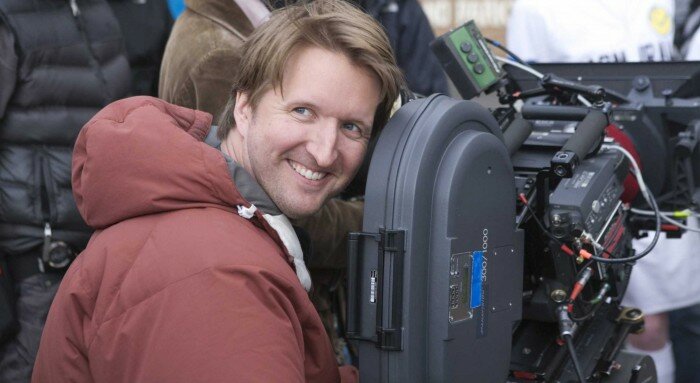
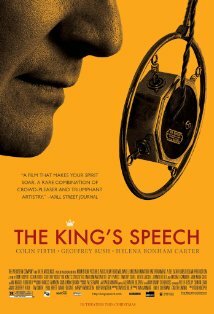
![the-kings-speech-movie-photo-02[1] the kings speech movie photo 021 e1292994912295 700x304 Interview: THE KINGS SPEECH director Tom Hooper](/wp-content/uploads/the-kings-speech-movie-photo-021-e1292994912295-700x304.jpg)
![kings-speech-wembl_1783200i[1] kings speech wembl 1783200i1 e1292995058115 Interview: THE KINGS SPEECH director Tom Hooper](/wp-content/uploads/kings-speech-wembl_1783200i1-e1292995058115.jpg)
